Key points
EIS officers are passionate about public health and making a difference. A key element of their training is learning and practicing way to communicate about their work. EIS officers get training the science behind giving effective scientific presentations and other ways of communicating including storytelling. This page includes examples of EIS officers and alumni giving TED-style talks at EIS conference, candid social media interviews, news features, podcasts, and CDC features.
Videos
The Woman in the Black Coat by Alex Barger, MD, MPH EIS 2023
EIS 2023 alumna Alex Barger explores the challenges of trying to rapidly gain the trust of an initially skeptical community during a time-sensitive outbreak investigation. Join her as she walks through the challenges of reaching contacts when all you have is blurry video footage.
Public Health without Borders: The New Geography of Trust by Karlyn Beer, PhD, MS EIS 2023
EIS 2023 alumna Karlyn Beer explores how many Americans turned to trusted messengers outside the government during the COVID-19 pandemic. Drawing from her transition from EIS to a public health tech startup, she shares how this new “trust reality” offers both challenges and opportunities for public health practice. She also shares how public health practitioners can amplify their impact by acting as bridges to alternative trusted entities.
Two Fun-Gals on Response: From Mycotics to Monkeypox by Ria Ghai, PhD (EIS 2024), and Elizabeth Sajewski, PhD, MS EIS 2023
EIS 2023 alumna Elizabeth Sajewski and Class of 2024 EIS officer Ria Ghai share their insights from the Monkeypox response in Uganda. Although they were deployed at different stages of the outbreak, the experiences and lessons each learned were similar, including how difficult and lonely it can be to navigate the complexities of an emergency response.
What’s Art Got to Do with It? by Brooke Staley, PhD, MPH EIS 2023
EIS 2023 alumna Brooke Staley highlights the importance of lived experience, taking viewers on a journey that blends science and art while tackling complex public health challenges. Listen in to hear how empowering those with lived experiences can create more realistic solutions.
Step-by-Step: My Mission to Make the Invisible Visible by Heather MacLeish, MPH, MS, BSN EIS 2024
Class of 2024 EIS officer Heather MacLeish shares her stories as a person with epilepsy (an invisible disability) attempting to navigate unsafe streets and unreliable transit. She takes participants (virtually) on her daily commute, showing the hurdles she navigates to everyday destinations such as work, medical appointments, and the grocery store―making the case for a safe pedestrian infrastructure.
Notes from the Boat: Uncharted Waters in TB by Minal Ahson, MD, MSPH, DTMH EIS 2023
EIS 2023 alumna Minal Ahson shares the secrets of success when conducting active case finding for Tuberculosis (TB) in Micronesia: teamwork, communication, resilience, and adventurousness. In this talk, she emphasizes the human characteristics that are often not discussed in an abstract or manuscript.
Learning the Ropes: Lessons from Mountaineering and Epidemiology by Michelle Holshue, PhD, BSN, RN EIS 2019
EIS 2019 alumna Michelle Holshue shares the parallels she’s observed as a public health practitioner and amateur mountaineer. Drawing from her experience investigating disease outbreaks and conquering her dizzying fear of heights, she shares her experience finding trusted partners and alternative measures of success. She also talks about the fine line between persevering when you can’t see a way forward and knowing when to care for yourself by turning back.
Visit the EIS YouTube playlist to watch TED-Style Talks from past EIS conferences.
Behind the Scenes of an Investigation with EIS Officer Sarah Luna
Learn about the compelling investigative work and personal experiences of an EIS officer in this TED-style Talk, an engaging new presentation format offered for the first time during the 2018 67th Annual Epidemic Intelligence Service Conference. In this video, Class of 2016 EIS officer Sarah Luna, PhD, addresses Food Behind Bars: When Food Safety Isn't Enough.
Podcasts
The Human Experience Behind the Legendary Work of Disease Detectives
CDC worked with the CDC Foundation and StoryCorps to capture public health history through the lens of distinguished CDC disease detectives.. These stories reflect a myriad of behind-the-scene stories, experiences and issues from the 1950s to present day. These EIS alumni were—and some still are—dedicated public health servants who made countless personal sacrifices for the greater good of public health. While they are known in the public health arena for their scientific integrity, advancements, and other public health accomplishments, today you can hear them speak candidly about their motivation for joining EIS, why they remained in public health, and how their views and lives were shaped by their EIS experience.
These unscripted interviews were recorded with audio only as open conversations between EIS legends and current EIS officers, EIS alumni, or someone with a personal connection. StoryCorps is a non-profit organization whose mission is to preserve and share humanity's stories to build connections between people and create a more just and compassionate world. Full length audio recordings will be preserved at the American Folklife Center at the Library of Congress to share wisdom and leave a legacy for future generations to come.
Hear from a few EIS legends in the following 3-minute audio recordings.
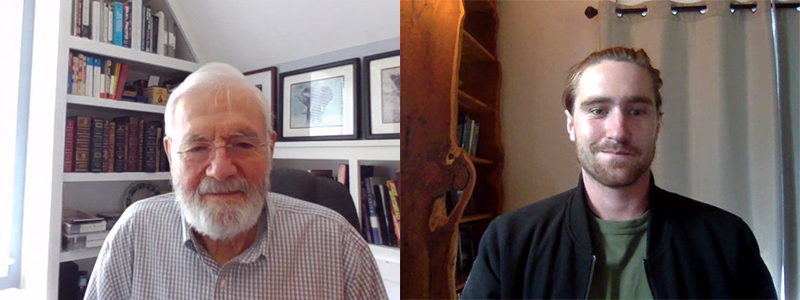
Dr. William "Bill" Foege, EIS class of 1962, is a physician and epidemiologist well known for his global health contributions that led to the eradication of smallpox in the late 1970s. Dr. Foege was appointed as CDC Director by President Jimmy Carter and served in this role from 1977 to 1983. In 1984, Dr. Foege co-founded the Task Force for Child Survival and Development, now the Task Force for Global Health. He later joined The Carter Center as its first executive director and fellow for health policy. Dr. Foege has also served as a Presidential Distinguished Professor of International Health at Emory University's Rollins School of Public Health, and as a senior medical advisor for the Bill & Melinda Gates Foundation. In 2012, President Barack Obama awarded Dr. Foege the Presidential Medal of Freedom, the nation's highest civilian honor. Dr. Foege's lifelong dedication to promoting global public health continues to inspire future generations of public health leaders. He is interviewed by his grandson, Max Morell-Foege.
Listen to interview [MP3 – 6 MB] | Transcript [96 KB, 1 Page]
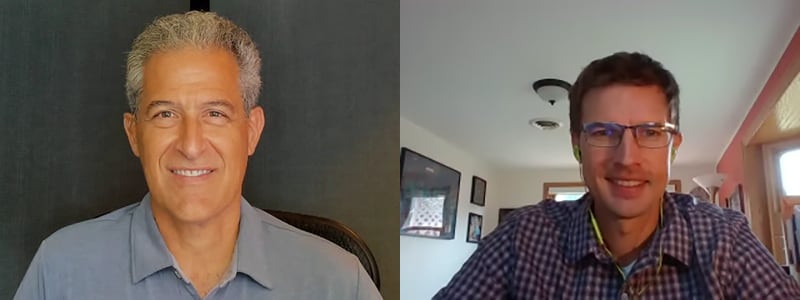
Dr. Richard "Rich" Besser, EIS class of 1991, is the President and CEO of the Robert Wood Johnson Foundation. Before joining the Foundation, he served eight years as chief health and medical editor for ABC News. He served as acting director of CDC during the initial response to the H1N1 influenza pandemic. Dr. Besser received the Surgeon General's Medallion for his leadership during the H1N1 response, and in 2011, the Dean's Medal for his contributions to public health from the Johns Hopkins Bloomberg School of Public Health. Dr. Besser is a leading voice on the importance of healthy community conditions, the need for economic wellbeing of families, accountable public health and healthcare systems. He is interviewed by fellow EIS alum Ian Pray (2019 class).
Listen to interview [MP3 – 8 MB] | Transcript [96 KB, 1 Page]
Access the full 45-minute recording.
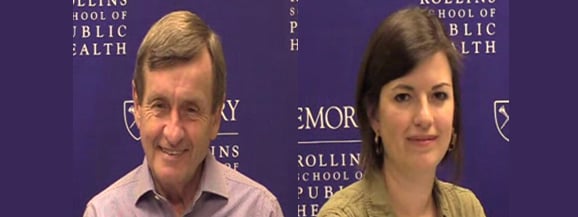
Dr. James "Jim" Curran, EIS class of 2004, is Dean Emeritus and Professor of Epidemiology and Global Health at Emory University's Rollins School of Public Health. In 1981, Dr. Curran was tapped to lead a CDC task force charged with determining what was behind the first cases of what we now know as AIDS. A pioneer in HIV/AIDS prevention, Dr. Curran led the nation's efforts in the battle against HIV/AIDS for 15 years, earning the rank of the assistant surgeon general. Dr. Curran was awarded the Surgeon General's Medal of Excellence in 1996 and received the John Snow Award from the American Public Health Association in 2003. For his Disease Detective-like work and leadership, he was awarded an honorary member of the EIS class of 2004. He has served as co-director of the Emory Center for AIDS Research and holds faculty appointments in the Emory School of Medicine and the Nell Hodgson Woodruff School of Nursing. In 2009, the Rollins School of Public Health Dean's position was named the James W. Curran Dean of Public Health in his honor. He is interviewed by his daughter and fellow EIS alum, Katie Curran (2013 class).
Listen to interview [MP3 – 8 MB] | Transcript [74 KB, 2 Pages]
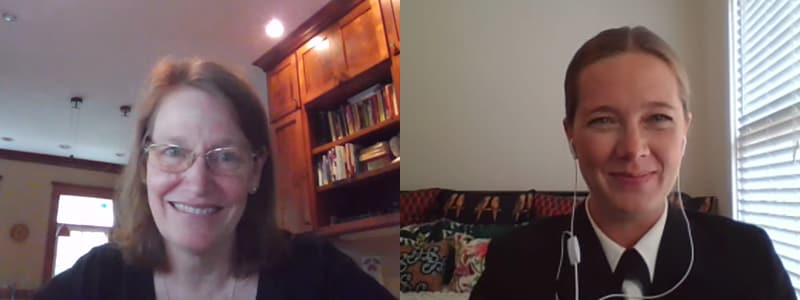
Dr. Barbara "Barb" Marston, EIS class of 1990, retired from CDC in 2022 as the Deputy Director for Science and Program in the Division of Parasitic Diseases and Malaria at CDC. During her CDC career, Dr. Marston has worked on a wide range of domestic and international public health programs, including CDC's Ebola response, the Division of Global Health Protection's Health Recovery Branch, and CDC's response efforts in Haiti following the 2010 earthquake. Dr. Marston has also worked as a medical epidemiologist in the Care and Treatment Branch of the Global AIDS Program, serving as CDC's core team representative for Tanzania and Kenya. Dr. Marston has received several awards for outstanding public health service including the Global AIDS Program Humanitarian Award and the Center for Global Health Director's Medal of Excellence in Global Health, an award that commends her contributions to public health in Haiti. She is interviewed by fellow EIS alum Anna Chard (2019 class).
Interview with former CDC Principal Deputy Director: Once a Disease Detective, Always a Disease Detective
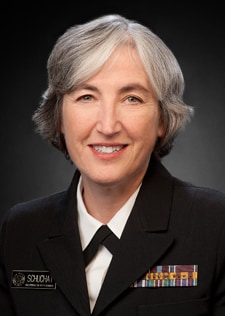
Learn how CDC's Epidemic Intelligence Service (EIS) officers—known as disease detectives—responded during the Severe Acute Respiratory Syndrome (SARS) outbreak in 2003 in this NPR podcast interview with former CDC Principal Deputy Director, Anne Schuchat, MD. Beginning with her time as an EIS officer in the class of 1988, she has played key roles in CDC emergency responses including the 2009 H1N1 pandemic influenza response, the 2003 SARS outbreak, the 2001 bioterrorist anthrax response, and others. Schuchat served as CDC's principal deputy director from September 2015 until her retirement in 2021 and served as acting CDC director in 2017 and 2018.
Interview with the chief of CDC's Epidemic Intelligence Service
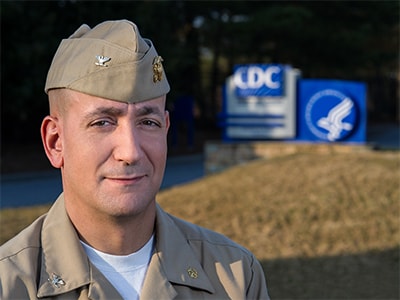
Learn about CDC's Epidemic Intelligence Service (EIS), including the open application period and selection process, through the American Public Health Association's (APHA) Epidemiology Section podcast interview with Eric Pevzner, Chief of the EIS program. Hear about the impact of the service provided by these disease detectives during their 2-year experiential fellowship, and find out about other fellowship and internship opportunities at CDC.
Feature Stories
Alexander Wu, EIS '18: Featured in Harvard Gazette for COVID-19 contributions
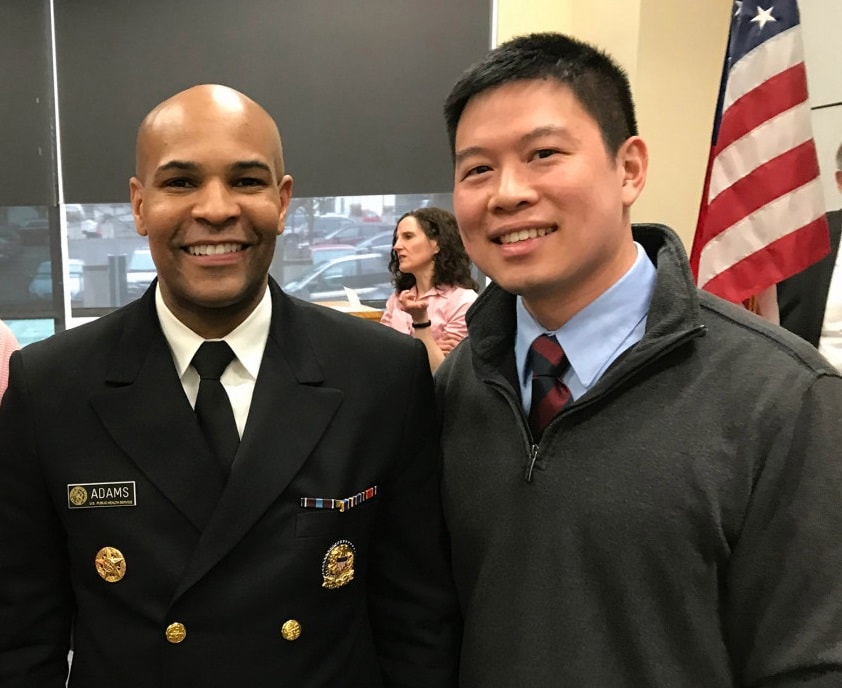
Alexander Wu, ScD, MPH, EIS Class of 2018, is featured in the May 2020 Harvard University Gazette collection of stories from alumni who are engaged in the COVID-19 response. Wu worked with a Native American community in the Pacific Northwest, where he trained contact tracers, advised community leaders and the executive director of the Northwest Portland Area Indian Health Board, and answered questions about COVID-19 on weekly video conference calls with over 200 tribal clinicians nationwide. Learn more about Wu's work in the Harvard Gazette feature, A COVID-19 battle with many fronts.
The Crucial Role of CDC's Disease Detectives: Frontline Defense Against COVID-19 and other Outbreaks
EIS alum Seema Yasmin (2011 class) draws on her perspective as a former CDC disease detective to address the COVID-19 response and the crucial role of EIS officers in this Rolling Stone Magazine article. February 29, 2020
Chasing Outbreaks: Movie Screens, Meningitis Surveillance, and Meaningful Service
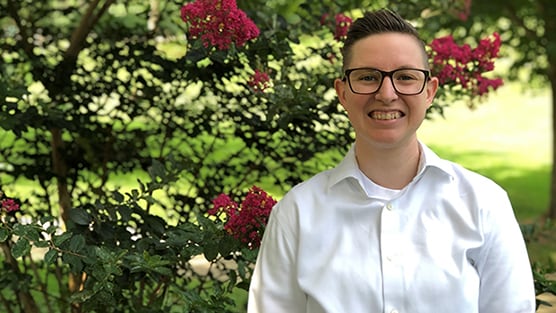
Olivia McGovern, PhD, EIS Class of 2018, shares her public health inspiration and journey in this University of Michigan spotlight article.
UNTHSC Grad chosen for CDC's 'top gun' disease detective service
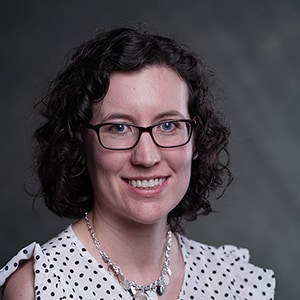
Amy Board, DrPH, MSW, MPH, EIS Class of 2019, shares the excitement about her acceptance into EIS and an assignment aligning with her interests in this University of North Texas spotlight article.
